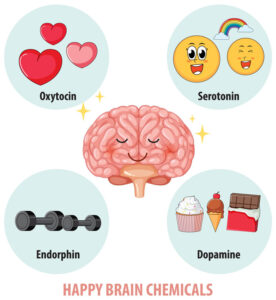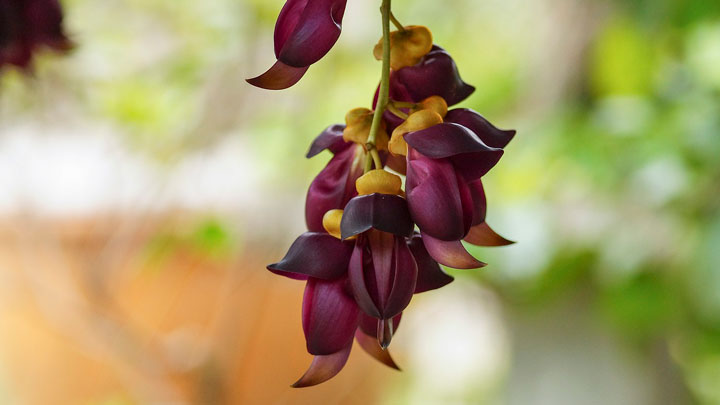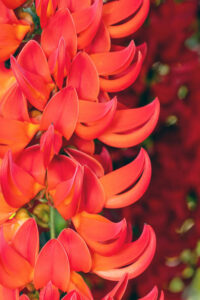If you’re like most people, then you probably don’t like feeling down in the dumps. Sometimes it takes a little push to get the spirits up. Exercise, sunshine, free hugs are all great options. But what if you could also consume a daily tonic superfood that would give you a natural dopamine “high”? Does nature answer the call for a non-drug approach for a mental boost? The answer is Yes! Mucuna pruriens, or simply mucuna.
What Is Mucuna Pruriens?
Ayurvedic Rasayana
The seed of this legume (Fabaceae family) is highly revered in Indian traditional medicine and is referred to mainly as “kapikacchu.” In English, however, it goes by several names, including “cowhage,” “cowitch” and the “magic velvet bean.” (1)
Mucuna pruriens grows on a caterpillaresque vine which pervades all of India. Specifically, Ayurvedic medicine celebrates mucuna as both a medicine and nutritional powerhouse. While there have been traditional uses for the root and irritating trichome “hairs” of the shell, the beans inside are the main prize. They can come in both black and white varieties. In Ayurveda, it is classified as an “aphrodisiac” and rasayanic herb, which tones and brings rejuvenation to all the organs of the body that produce “ojas” or vital essence. (2)
TCM Jing Herb
Similarly, Traditional Chinese Medicine claims it to be a “jing” herb, producing life force in the body. It is highly digestible and boasts a 23-35% protein profile. In Guatemala, the coffee-substitute “nescafe” uses the ground and roasted bean to produce a rich caffeine-free staple drink. For medicinal preparations, the seeds are usually boiled in milk, to remove the skin, then strained, dried, and pulverized. (3)
Nerve Tonic

Image by kjpargeter on Freepik
True to the Doctrine of Signatures, this unique bean looks strangely enough like a spinal cord, and sure enough it is an ultra-nourisher of the nerves. The most note-worthy component of this heavyweight bean is that of Levodopa (L-dopa), the precursor to the feel-good neurotransmitter dopamine. Parkinson’s disease is characterized as a dopamine deficiency, as, unfortunately, dopamine does not cross the blood brain barrier. (4)
Not to worry! The body produces an enzyme that can convert L-dopa into dopamine and reverse motor symptoms of Parkinson’s. In fact, mucuna, as the highest natural source of L-dopa (5%), is 2-3 times more potent, as well as better tolerated, than its synthetic counterpart drug. The symptomatic treatment lasts longer and is more effective, too! (5)

Image by brgfx on Freepik
“We suggest the potential for Mucuna pruriens (MP), a leguminous plant, to replace or supplement levodopa-based medicines in countries where levodopa is unaffordable and inaccessible due to its low costs of preparation and high natural availability. MP has been shown to induce a great improvement of motor symptoms with few adverse events in recent studies.” (6)
Velvet beans have the general ability to calm and stabilize the nervous system and reduce the effects of stress.
Specifically, magic velvet bean is especially helpful for people recovering with dopamine-depleting adrenal burnout from stress, addictions such as sex, alcohol and drugs, or over-exercise. It works like an anti-stimulant to gradually restore normal neurochemical levels in the brain. Containing also small amounts of serotonin, 5-HTP, tryptamine, and other neurotransmitters this makes for a true nootropic. (7)
Unfortunately, the taste of mucuna can be off-putting. That’s why we add it to honey and cacao, for chocolates with a smooth, soothing vibe. But you can also try other high sources of L-dopa, like fava beans and cassia seeds. (8)
The famous superfoodist and gastronaut David Wolfe comments: “I categorize mucuna as an anti-stimulant that should be taken with stimulant-containing foods or beverages ….. The cacao-mucuna stimulant-to-anti-stimulant relationship is one of the oldest known, dating back thousands of years.” (9)
Reproductive Tonic
If you need a boost in your testosterone levels, then Mucuna is for you as well. The metabolism and circulation promoting effects of the bean work wonders for the increasing androgen hormones making this great for body building efficacy, improving libido and semen potency. “Treatment with M. pruriens regulates steroidogenesis and improves semen quality in infertile men.” (10)
Trying to get pregnant? Then give this a chance. It may just be the trick you need!
As noted below, however, once pregnant, avoid use or discuss first with a trusted health professional.
Anti-venom Tonic
No one likes getting bitten by a snake, but what if you are minutes from a blackout? Reach for your Mucuna? Yes! Velvet bean can also be classified as an anti-ophidian herb – plant substances that can effectively counteract venom poisoning.
Research in recent years has confirmed what Indian tradition has known long ago, that mucuna pruriens has the ability to mitigate the toxic effects of snake venom poisoning. Within the toxic cocktail of venom are neurotoxins, cardiotoxins, cytotoxins, phospholipase A2 (PLA2), and proteases which contribute to its deadly effects. Thankfully, there are immunogenic glycoproteins that stimulate antibody production which, in turn, neutralizes venom proteins. (11, 12)
Snakes are no match for Mucuna!
Mucuna Pruriens: Cautions and Conclusions
So for any raw food, herbal extracts may be more easily digested. That’s because raw beans naturally have enzyme inhibitors. These keep beans from sprouting prematurely. Unfortunately, they also make it harder for us to digest the food. Therefore, please use discretion.
Also, while mucuna pruriens does contain the hallucinogenic compounds bufotenin and 5-MeODMT, they are in microscopic amounts. Consult a knowledgeable health professional about dosing if you have any concerns. Pregnant women, however, should avoid mucuna. (13)



